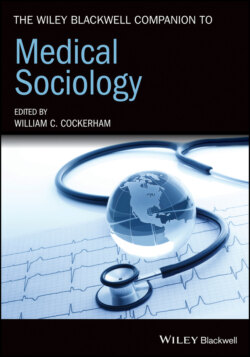Читать книгу The Wiley Blackwell Companion to Medical Sociology - Группа авторов - Страница 73
CONCLUSION
ОглавлениеMedical sociology and bioethics came into being in the second half of the twentieth century and in the same place – namely the US – with a similar focus on patient rights, and neither paid attention to the other. When sociologists began to examine this new field of bioethics, they often were critical of the enterprise, pointing to the limits of “a monistic conception of ethical universalism … coupled with a tendency to disregard context” (Fox and Swazey 2008). The recurrent social science critique of bioethics has hampered a more theoretical and richer empirical approach to the emergence and development of bioethics. At the same time, it has helped construct and identify bioethics as a new territory, a distinctive object (Callahan 1999) to study. One of the early collection of essays on the relationship between bioethics and social science (De Vries and Subedi 1998) was a strongly critical appraisal of the bioethical enterprise and a call for more convergence between the two as conceptualized by Zussman (2000). In 2001, a second anthology appeared (Hoffmaster 2001), using qualitative research methods that called attention to the multiple contexts that generated both bioethics problems and debates about those problems. Recent social scientific examinations of bioethics (De Vries et al. 2007; Evans 2014; Kingori et al. 2013) move towards a clearer identification of the ways bioethics can extend sociological knowledge by exploring the social history of ethical problem solving, the way moral boundaries (Feuillet Liger et al. 2013) are negotiated in biomedicine and issues of ethics policies in different cultural contexts (Feuillet Liger et al. 2013; Myser 2011). We are now past the point where that argument must be made: for better or for worse, the social sciences are now part of the interdisciplinary bioethical enterprise. Bosk (2008), for example, uses the ethnographic lens of sociology to look at the emergent social organization of the everyday ethical dilemmas of clinical care and research and, at the same time, looks at ethnography through the lens of ethics. Others advocate for a normative approach beyond bioethics, a so called “sociology of bio-knowledge” (Petersen 2013).
Of course (as sociologists would predict) the place of social science in bioethics varies by cultural and social context. In the Netherlands and Belgium, the creation of “empirical bioethics” has given social science an established voice in the bioethical conversation (Borry et al. 2005; Stolper et al. 2020; Van der Scheer and Widdershoven 2004). In France, bioethics is analyzed in Foucault’s terms of “bio -politics” (Fassin 2012). In North America and the UK, social science methods are widely used in bioethics, but social scientists remain, to a certain extent, strangers to the field (De Vries 2004; Hedgecoe 2004). There are advantages to both insider and outsider statuses. We North Americans who stand at a distance from bioethics can take comfort in Simmel’s (Simmel [1908] 1971) observation that the stranger “is freer practically and theoretically … he surveys conditions with less prejudice [and] is not tied down in his action by habit, piety, and precedent.” Simmel pointed out that those who do not “own the soil” are in a unique position, one that combines nearness and distance, indifference and involvement, a social location that allows them to become the recipients of a “most surprising openness” from group members.
On the other hand, there are undeniable benefits that come with “owning the soil” of bioethics. The collaborative work that gets done under the rubric of empirical bioethics moves the important ideas of philosophical bioethics into the real world of medicine and medical research where human beings live and work and help and harm each other (Borry et al. 2004; De Vries 2017; Molewijk et al. 2003). This tension between the “voice in the wilderness” (that no one hears) and “going native” (thereby losing the distinctive, critical perspective offered by sociology) can be used productively: distance allows challenges to the common-sense of bioethics, and closeness allows the analyses of social scientists to be incorporated into the work of bioethicists (Zussman 2000; De Vries et al. 2007).
Finally, bioethics can be viewed as an unsettled field, a project of modernity itself, a constant and tense relationship between reason and subject. Our Western culture evolved not from irrationality to rationality but from an integrated view of the universe, considered (in the Enlightenment model) as both rational and created by God, to a growing separation between the objective and subjective universes (Touraine 1995). The bioethical enterprise can be viewed as the reformulation of modernity, no longer a quest for a unified world or principle – be it rationalization, cultural identity, or any other principle – but as an inevitable tension between rationalization and individualism or subjectivism. If one component wins over the other, rationalization becomes an instrument of power and individualism a negative cultural identity (fundamentalism, nationalism, etc.). So, in a sense, the sociological critics of bioethics are both right and wrong: bioethics, as a critique of modernity, can only retain its vitality and be renewed by remaining unsettled, evolving in an ongoing process of disagreement and temporary consensus.
